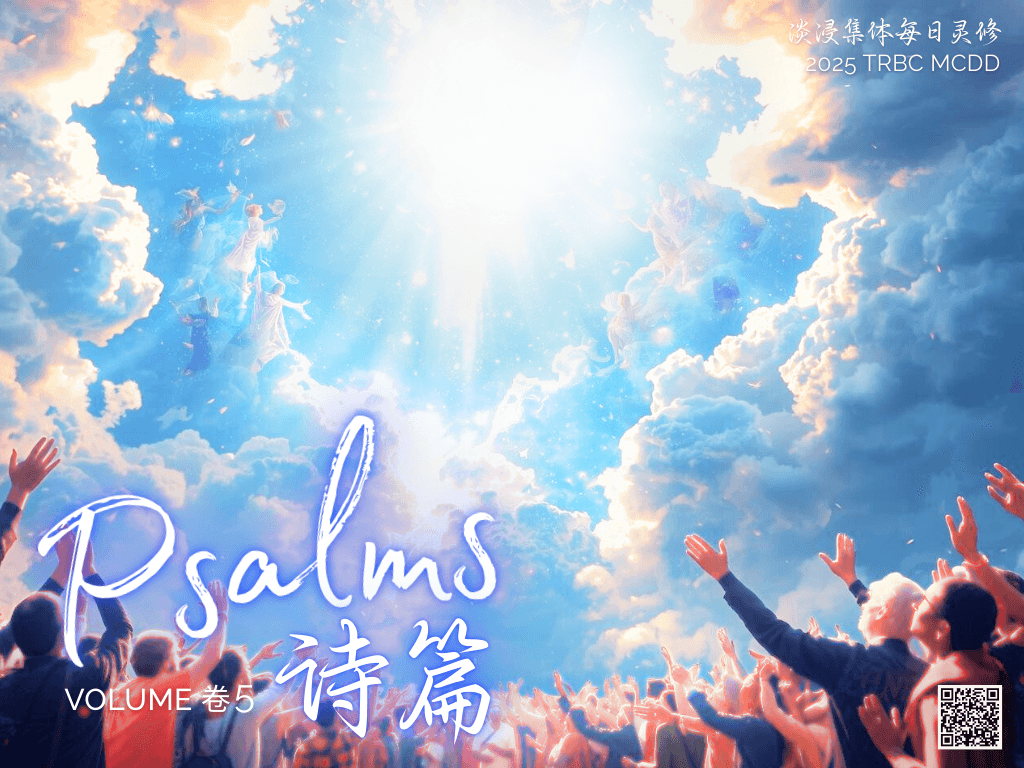Last 5 Days

Bless the Name of the Lord

Click here to read Ch 107
Psalm 107 is written for the “redeemed”—those whom God has saved and brought back from all corners of the earth. Though they came from different backgrounds and situations, they shared the same identity: they were redeemed by the Lord. Therefore, the psalmist calls upon all believers (those redeemed by God) to give thanks to the Lord for His goodness and to praise His name.
In Israel’s early history, the “redeemed” referred to God’s people delivered out of Egypt. Later, after Israel was exiled to Babylon, the “redeemed” became those whom God brought back from captivity. The background of this psalm is precisely that period of exile. God was restoring songs of praise to His people, and the psalmist describes four kinds of hardships that the redeemed experienced, along with how God delivered them.
1. Those wandering in the wilderness (Ps. 107:4–5)
Wandering in the wilderness speaks of being in a state without a home, helpless and vulnerable. In Israel’s history, the wilderness symbolized rebellion and turning away from God. The exile felt like a second wilderness experience. When the redeemed were hungry, thirsty, and faint, would they once again sin against God as before?
2. Those imprisoned (Ps. 107:10–12)
Darkness, the shadow of death, and being bound in chains could describe literal prisoners, but it could also refer to anyone spiritually enslaved. Their suffering came because they rebelled against God’s word, and they endured affliction as a result. In their helplessness, would they cry out to God for deliverance?
3. The foolish who suffered illness (Ps. 107:17–18)
Verse 20 speaks of God’s “healing,” implying that this third group were the foolish ones who had fallen sick. Their pain, loss of appetite, and nearness to death were consequences of sin and guilt that even affected their physical health. In the midst of their anguish, would they call upon God for healing?
4. Those at sea (Ps. 107:23–27)
“Some went out on the sea in ships, doing business on the mighty waters.” This points to those who found themselves in overwhelming and uncontrollable circumstances. In ancient times, the sea symbolized terror, chaos, and even death—something beyond human control. These people staggered like drunkards, their wisdom useless against the storm. Would they cry out to God for rescue?
The answer is yes. In every situation of distress, the redeemed cried out to the Lord. Again and again the psalm repeats: “Then they cried to the Lord in their trouble, and He delivered them from their distress” (Ps. 107:6–9, 13–16, 19–22, 28–32). The result of calling upon God was His deliverance, and the reason He rescued them was because of His steadfast love and mercy (Ps. 107:8, 15, 21, 31). With His mighty hand He saves every one of His beloved people. Our response, then, is to join together in thanksgiving, to testify and proclaim God’s salvation, so that all may see how great His works truly are.
Brothers and sisters, when we look back, I believe each of us has, in one way or another, lived as the “redeemed.” Perhaps we wandered in the wilderness, struggled in darkness, battled with illness, or endured fiery trials. Yet we have come through—because of whom? After walking through such difficulties, have we taken time to ponder deeply the steadfast love of the One who works wonders? May we truly rejoice and praise His name for His unfailing love that endures forever.
Prayer:
Dear Heavenly Father, we offer You our sacrifice of thanksgiving, rejoicing and proclaiming the splendor of Your works. Our hearts rise to bless and exalt You, for You are the God full of love, grace, and mercy. To You be glory, praise, and power forever and ever. Amen!
